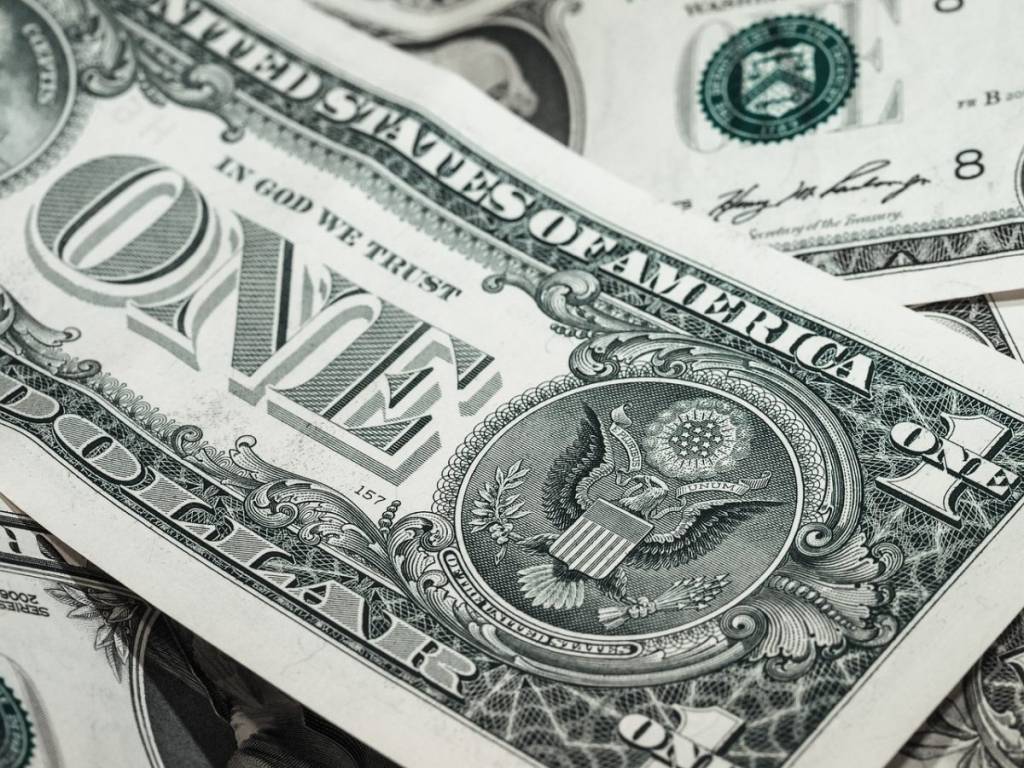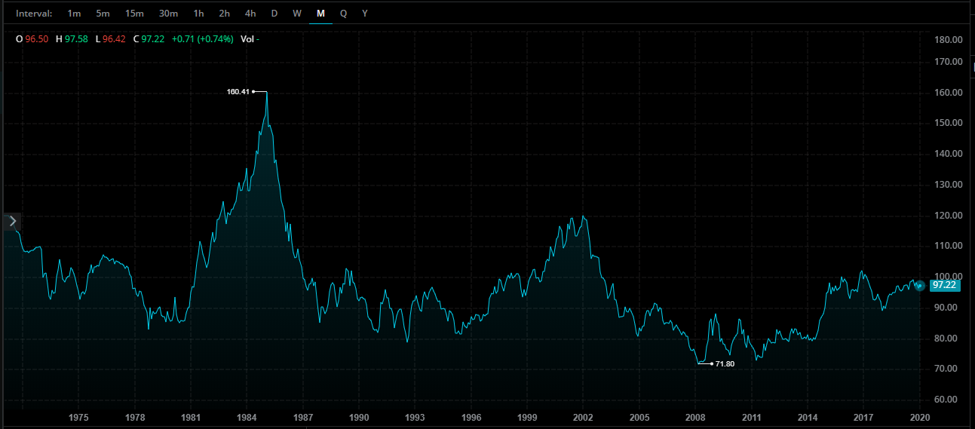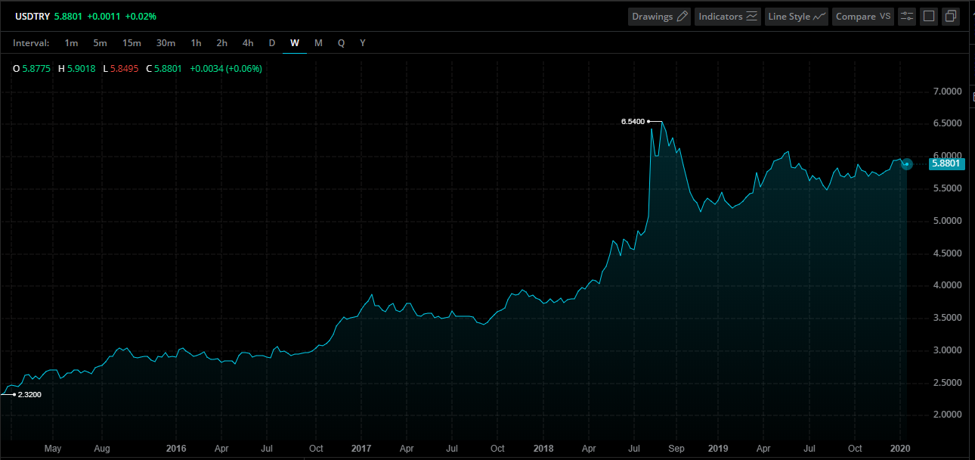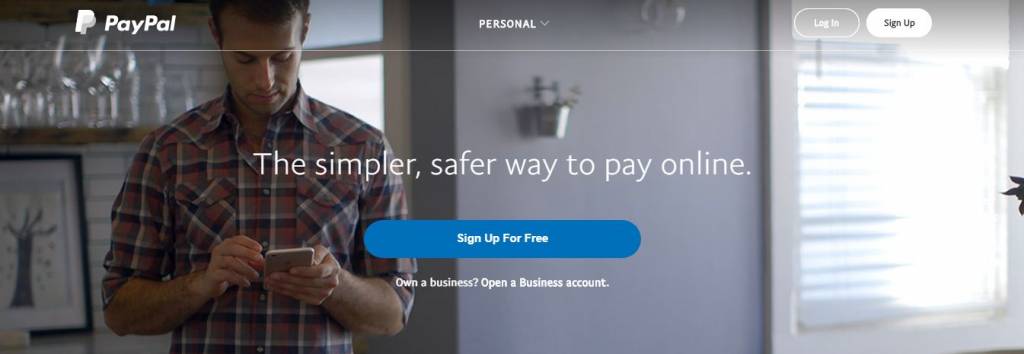The US dollar is the most important currency in the world. The currency is responsible for more than 83% of global trade. Indeed, most people who do international trade use dollars for this. Even those who buy products from China use the dollar for these transactions. The dollar is also the world reserve currency. This means that most countries hold huge sums of the US dollar. In this article, we will look at how to hold dollars for people living outside the US.
Contents
- 1 How Old Is the US Dollar and How It Became the World’s Reserve Currency
- 2 Why You Should Hold US dollars
- 3 Drawbacks of Holding US Dollars
- 4 Case Study on the Need to Hold Dollars
- 5 Ways You Can Hold US Dollars
- 6 Dollar Bank Account
- 7 Online Wallet
- 8 How to Open a USD Dollar Account: Select Countries
- 9 Keeping Your Money in US Dollars
How Old Is the US Dollar and How It Became the World’s Reserve Currency

The US dollar has been in existence for centuries. Its history can be traced to 1690, when the US was not yet the country it is today. The currency was then selected to be the official currency of the United States in 1785. In the 1800s, as world trade was starting to kick off, the dollar became an international currency that was backed by gold. This era was known as the gold standard. The standard started to wane during the first world war, when Germany needed a lot of money to pay for the war.
In 1942, world leaders met in Bretton Woods, where they came up with the Bretton Wood agreement. This was an agreement that strengthened the gold standard. It fixed an ounce of gold at $35. In 1971, Richard Nixon ended the gold standard, and the dollar was no longer fixed to the price of gold. The dollar hegemony strengthened as the world became more powerful.
The US dollar is the world’s reserve currency, meaning it is the most widely accepted and traded currency in the world. This is due to a number of factors, including the size and strength of the US economy, the stability of the US government, and the depth and liquidity of US financial markets.
Why You Should Hold US dollars
Holding dollars is a good thing for most people. Indeed, most wealthy people don’t hold their capital in a single currency. There are several reasons why you should consider holding dollars. Some of them are:
- Most important currency in the world. Holding dollars is to hold the most important currency in the world, as most governments do.
- Liquidity of the currency. You can transact with the dollar anywhere in the world. This is not the case for many currencies.
- Diversification. Having an account with a single currency is dangerous if the currency weakens.
- Cheaper to buy. If you shop online, using the USD will save you a lot of money because you won’t need to exchange the rates.
- Stable currency. The USD is known for its stability. It does not exhibit huge swings, as you can see on the chart below.
- International investments. If you are investing in international markets, you will likely need to hold US dollars in order to purchase assets.

Drawbacks of Holding US Dollars
Holding US dollars has several drawbacks. Interest rates on US dollar deposits are relatively low, so you won’t earn much interest on your savings. For example, the average interest rate on a one-year US dollar savings account is currently around 0.5%. This is much lower than the interest rates available on deposits in other currencies, such as the Japanese yen or the Swiss franc.
Another drawback of holding US dollars is inflation risk. If inflation in the United States is higher than inflation in your home country, the purchasing power of your US dollar savings will decline over time. This means that your savings will buy less in the future.
Finally, if the United States imposes sanctions on your country, you may have difficulty accessing or using your US dollar savings. This is because sanctions can restrict the flow of money between the United States and other countries.
Read also: Best multicurrency business bank accounts
Case Study on the Need to Hold Dollars
Zimbabwe, Venezuela, and Argentina have all experienced severe economic crises in recent years, characterized by high inflation, currency devaluations, and shortages of essential goods and services. Zimbabwe had the highest inflation rate, at 244%, followed by Venezuela at 399.98%, and Argentina at 72.43%. In all three cases, the US dollar has become a sought-after currency, as people have sought to protect their savings and purchasing power.
The cases of Zimbabwe, Venezuela, and Argentina highlight the importance of holding at least some of your savings in US dollars, especially if you live in a country with a volatile currency.

Ways You Can Hold US Dollars
There are a number of ways to hold US dollars, including:
- US dollar bank accounts: You can open a Dollar bank account at a bank in your home country, in the United States, or online through a US dollar non-resident account. This is the most common way to hold US dollars, and it is generally the most secure.
- US dollar-denominated assets: You can invest in US dollar-denominated assets, such as stocks, bonds, or real estate. This is a good way to hold US dollars if you are looking for a long-term investment.
- USD online wallets: USD online wallets are a digital way to hold and manage US dollars. They are convenient and easy to use, but they are not as secure as bank accounts.
Dollar Bank Account
Most banks around the world enable people to open a bank account in their local currency. As such, you can have two bank accounts in your local bank. You can have a local currency bank account and a dollar account. You should use the local currency account for day to day transactions and the dollar account for savings.
There are two main challenges with this mode. First, most banks charge a monthly maintenance fee for foreign currencies. This may discourage most people from using the services. Second, most ATMs are usually loaded with local currency. Therefore, when you go to withdraw, you will be charged a relatively higher fees.
If you are unable to open a USD account with your local bank, you can consider opening an online multicurrency non-resident account. This type of account allows you to hold and manage money in multiple currencies, including USD, from anywhere in the world.
Read also: Best multicurrency cards around the world
Online Wallet

Another option that you have is to create an online wallet and save your money there. There are many online wallets you can use to hold dollars. Good examples of this are PayPal, Skrill, and Neteller. You can also use the several Bitcoin wallets that are available. These accounts are good because they don’t charge you a monthly fee. Another advantage is that they have low fees when you want to buy anything online. A risk for this option is that your online account may be hacked.
How to Open a USD Dollar Account: Select Countries
If you can’t open a non-resident account in the US, there are many countries around the world with banks that allow you to open a USD bank account. Here is how to do that in these selected countries:
US Dollar Account in UK
You can open a US dollar account in the UK with a high-street bank, a UK online bank , or payment specialists. Your options for a US dollar account in the UK include:
High-street Banks:
- Barclays
- HSBC
- Lloyds Bank
- NatWest
- Santander
Online Solutions:
You can also use online payment and exchange providers like CurrencyFair and OFX, in addition to the options listed above.
US Dollar Account in Australia
You can open a US dollar account in Australia with most major banks. However, the accounts offered by many major banks tend to be pretty restrictive, with relatively high fees. Instead, you may find it easier and more convenient to use an online multicurrency accounts like Revolut and Wise or payments specialists like OFX, a global foreign exchange and payments company based in Australia.
Major banks with US dollar account in Australia include the following:
- ANZ Bank
- Commonwealth Bank
- NAB (National Australia Bank)
- Westpac
- Citibank
Read also: Revolut Australia review
US Dollar Account in India
US dollar accounts in India are available to both residents and non-residents. For residents, these accounts are typically known as Resident Foreign Currency (Domestic) accounts, or RFC(D) accounts. For non-residents, they are called Foreign Currency Non-Resident (FCNR) accounts.
Here are some of the banks in India that offer US dollar accounts to resident and non-resident:
- State Bank of India (SBI)
- ICICI Bank
- HDFC Bank
- Axis Bank
- Kotak Mahindra Bank
US Dollar Account in UAE
There are many banks in the UAE that offer US dollar accounts. Some of the most popular options include:
- Emirates NBD
- Mashreq
- RAKBANK
- HSBC
- Citibank
- Abu Dhabi Commercial Bank (ADCB)
US Dollar Account in Singapore
You can open a US dollar account in Singapore with either a local bank or a non-bank financial institution. Local banks typically require a minimum opening deposit of USD 1,000 and have monthly fees, but they offer a wider range of features and benefits, such as interest on USD deposits and the ability to make payments and withdraw cash in USD. Non-bank financial institutions may have lower fees and no minimum deposit requirement, but they may also have fewer features and benefits.
These are some of your options for a USD account in Singapore:
Local Banks:
- DBS USD My Account
- UOB USD Global Currency Account
- OCBC USD Checking Account
- HSBC USD Savings Account
- Citibank USD Savings Account
Online Solutions:
- Wise Multi-Currency Account
- Revolut
- CurrencyFair
US Dollar Account in Kenya
To open a USD dollar account in Kenya, you will need to visit a bank in person. You will need to provide the bank with your passport and a valid Kenyan ID card. You may also need to provide proof of income. USD dollar accounts in Kenya are available at the following banks:
- Equity Bank Kenya
- KCB Bank Kenya
- Standard Chartered Bank Kenya
- Absa Bank Kenya
- NCBA Bank Kenya
- I&M Bank Kenya
Dollar Bank Account in Pakistan
Here are some banks in Pakistan that offer USD dollar accounts, among others:
- Habib Bank
- MCB Bank
- Allied Bank
- Standard Chartered Bank
- Citibank
Dollar Account in the Philippines
Some of the banks in the Philippines that offer USD dollar accounts include:
- BDO Unibank
- Metrobank
- BPI
- Citibank
- HSBC
Dollar Account in Nigeria
These are some Nigerian banks where you can open a USD dollar account:
- First Bank of Nigeria
- Zenith Bank
- Guaranty Trust Bank
- Stanbic IBTC Bank
- Citibank
US Dollar Account in Canada
Many banks in Canada offer US dollar accounts. Here are a few of the most popular options:
- TD Canada Trust
- RBC Royal Bank
- Scotiabank
- CIBC
- EQ Bank
- National Bank of Canada
US Dollar Account in Colombia
There are a few banks in Colombia that allow foreign currency account opening, including:
- Bancolombia
- BBVA Colombia
- Banco de Bogotá
- Davivienda
- Banco Popular
- Citibank Colombia
However, it is important to note that Colombian law does not allow for the opening of bank accounts in foreign currencies directly. Instead, the accounts are opened in Colombian pesos, but the bank will convert the funds to US dollars and deposit them into the account
US Dollar Account in Mexico
It’s possible to open a US dollar account in Mexico. Some popular banks that offer this service include:
- BBVA México
- Citibanamex
- HSBC México
- Scotiabank México
- Santander México
Keeping Your Money in US Dollars
The US dollar is the world’s reserve currency. As a result, it is a relatively stable currency that is less likely to be affected by economic uncertainty. There are many ways to save your money in US dollars. The best method for you will depend on your financial goals, income, and the country you live in. If you live in
If you need to access your money regularly, opening a US dollar-denominated bank account is a good option. However, it is important to note that interest rates on US dollar accounts are typically lower than those on local currency accounts.
If you are looking for a more long-term investment option, you may want to consider investing in US dollar-denominated assets such as stocks, bonds, or real estate. This can be a good way to hedge against currency fluctuations and earn a return on your investment.
